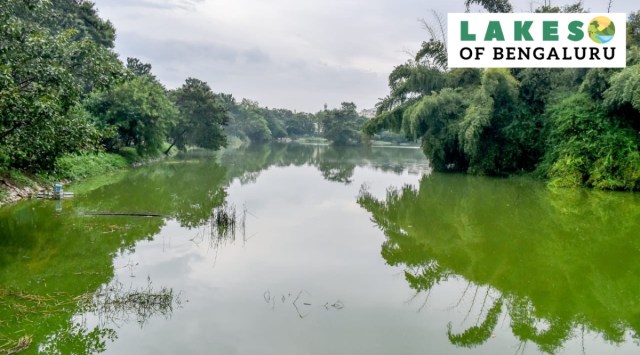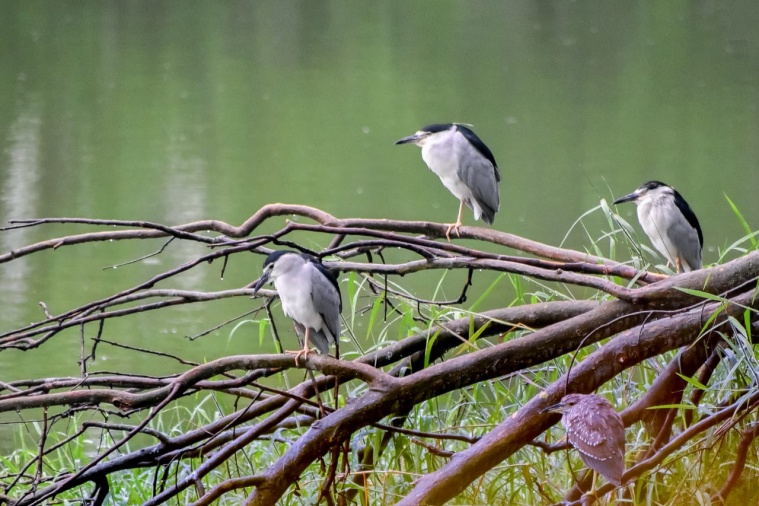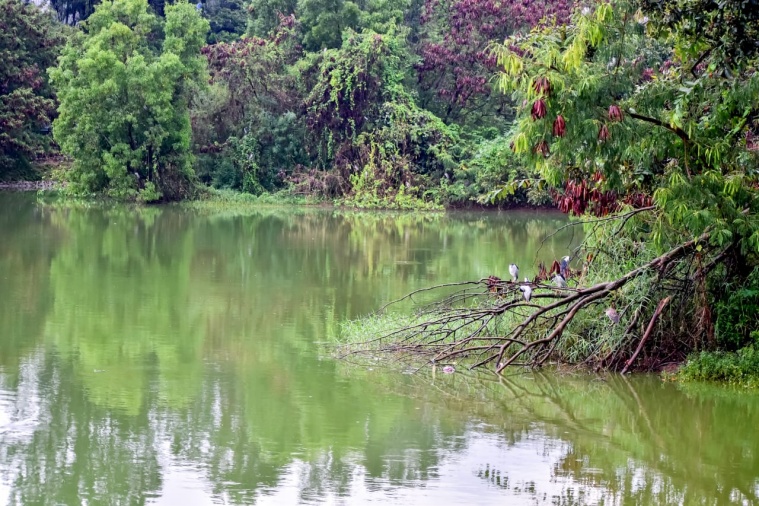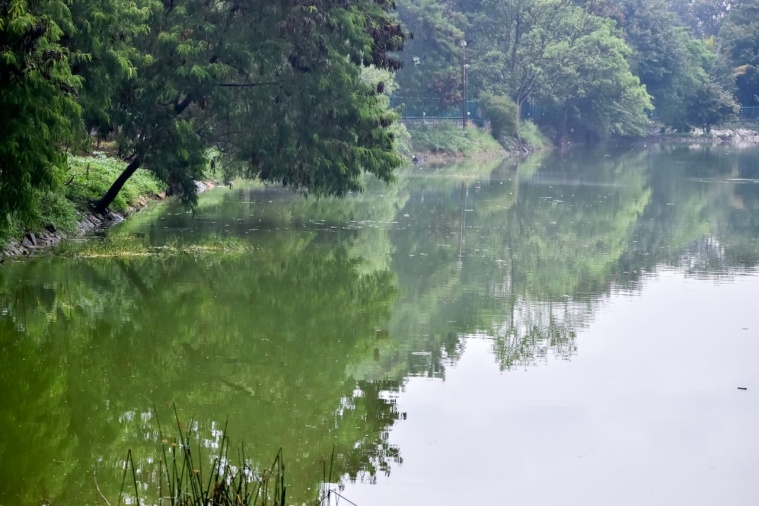Stay updated with the latest - Click here to follow us on Instagram
Lakes of Bengaluru: Presence of large amounts of nutrients not good for Uttarahalli Lake, say experts
While 2.14 acre of the lake has been encroached for the government projects, according to officials of the Bruhat Bengaluru Mahanagara Palike (BBMP), the survey to determine the type of encroachments is yet to be carried out.
 Uttarahalli Lake in Bengaluru. (Express photo by Jithendra M.)
Uttarahalli Lake in Bengaluru. (Express photo by Jithendra M.)Spanning across 15.16 acre in Bangalore South, the Uttarahalli Lake falls in the Vrishabhavathi valley lake series. Experts point out that despite being a major lake, the poor water quality is not conducive for the biodiversity in and around the lake.
While 2.14 acre of the lake has been encroached for the government projects, according to officials of the Bruhat Bengaluru Mahanagara Palike (BBMP), the survey to determine the type of encroachments is yet to be carried out.
 Experts point out that despite being a major lake, the poor water quality is not conducive for the biodiversity in and around the lake. (Express Photo by Jithendra M.)
Experts point out that despite being a major lake, the poor water quality is not conducive for the biodiversity in and around the lake. (Express Photo by Jithendra M.)
Raghavendra B Pachhapur, Programme manager with ActionAid Association, India, said, “The lake water is full of algal bloom (water colour turns green and is an indicator that Eutrophication has begun). Eutrophication happens when large amounts of nutrients enter the lake waters due to sewage.”
He added, “Presence of a large number of catfish in the lake means it is less likely that other species of fish exist. Catfish are mainly omnivorous and opportunistic feeders. They were also noticed gasping for air. If the present condition continues for long, it is likely that even the catfish population will be lost.”
Pachhapur suggested that BBMP should take up bio-remediation measures to reduce the nutrient load in the water or take measures to introduce fresh rainwater or treated water to the lake.
 2.14 acre of the lake has been encroached for the government projects, according to BBMP officials. (Express photo by Jithendra M.)
2.14 acre of the lake has been encroached for the government projects, according to BBMP officials. (Express photo by Jithendra M.)
Offering his insights about the lake, he added that the Sewage Treatment Plant (STP) at the lake is non-functional. “STP comes with bigger investment and is a welcome initiative for any lake ecosystem in urban spaces. Let us not forget that it also comes with the responsibility of maintenance. BBMP should take up STP, only if it can provide sufficient funds for both initial investment and maintenance.”
He further said, “We know that different streams, both small and big, contribute to lakes during the rains. BBMP, as a part of the lake rejuvenation Detailed Project Report (DPR), should identify streams joining the lake and make adequate structures to link them to the lakes while trapping silt and trash. This is sustainable and improves the water quality of the lakes.”
 Raghavendra B Pachhapur, Programme manager with ActionAid Association, India, said, “The lake water is full of algal bloom (water colour turns green and is an indicator that Eutrophication has begun). (Express photo by Jithendra M.)
Raghavendra B Pachhapur, Programme manager with ActionAid Association, India, said, “The lake water is full of algal bloom (water colour turns green and is an indicator that Eutrophication has begun). (Express photo by Jithendra M.)
He also cited the example of the Doddakallasandra Lake which now harnesses rainwater after its rejuvenation.
He pointed out that unused fishing nets are abandoned at the Uttarahalli Lake which could be fatal for the birds and aquatic species.
“Last week an Oriental darter was found with its beak trapped in a fishing net. While we tried to rescue the bird, it flew away. These instances in the lakes are becoming common because of fishing contracts provided in Bengaluru. Unused fishing nets or trash nets are left either on the banks or in the water and could be fatal for birds and other aquatic animals. The fisheries Department should take note of these and educate the fishing communities for healthy practices,” Pachhapur said.
 Pachhapur suggested that BBMP should take up bio-remediation measures to reduce the nutrient load in the water. (Express photo by Jithendra M.)
Pachhapur suggested that BBMP should take up bio-remediation measures to reduce the nutrient load in the water. (Express photo by Jithendra M.)
Biodiversity around Uttarahalli Lake
Over the last five years, a total of 87 species of birds have been recorded in and around Uttarahalli Lake. Pachhapur said, “The two smaller and two comparatively bigger islands seem like an added advantage. Wild and reasonably good vegetation with fruits in the islands may have attracted the birds.”
He added, “Seven Night Herons were noticed apart from one Oriental Darter, and a White Breasted Kingfisher on October 9 this year. Four species of butterflies — Common crow, Plain Tiger, Blue Tiger and Common Castor — were seen in larger numbers around the plants too.”







